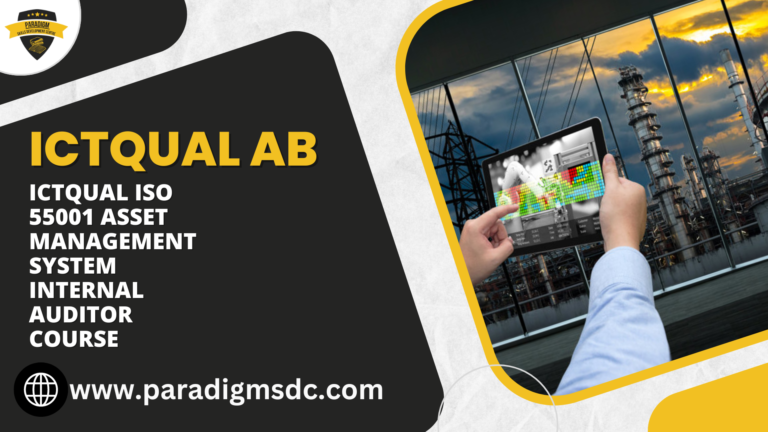ICTQual Level 4 Certificate in First Response Emergency Care
Course Introduction
The ICTQual Level 4 Certificate in First Response Emergency Care (FREC) is a comprehensive and advanced training program designed for individuals who aspire to excel in pre-hospital emergency care. This course builds upon foundational knowledge and skills, providing learners with in-depth training in managing complex medical and trauma emergencies. It is ideal for those seeking to enhance their competence and career prospects in the emergency medical services (EMS) field.
Course Overview
The ICTQual Level 4 FREC course offers a robust blend of theoretical instruction and practical experience. Over the course of the program, participants engage in detailed learning modules, interactive scenarios, and rigorous assessments. The curriculum covers advanced emergency care topics, ensuring that learners are well-prepared to deliver high-quality care in diverse and challenging environments.
Course Study Units
- Basic Life Support (BLS)
- Trauma Management
- Airway Management
- Medical Emergencies
- Incident Management
Learning Outcomes
Upon completing the ICTQual Level 4 FREC course, learners will be able to:
Basic Life Support (BLS)
- Demonstrate Proficiency in Cardiopulmonary Resuscitation (CPR): Participants will be able to perform high-quality CPR on adult, child, and infant manikins according to established guidelines, including proper hand placement, compression depth, rate, and recoil.
- Utilize Automated External Defibrillators (AEDs) Effectively: Participants will understand the indications for AED use and demonstrate the ability to operate AED equipment safely and effectively during simulated cardiac arrest scenarios.
- Manage Choking Emergencies: Participants will be able to recognize and respond to choking emergencies promptly, applying appropriate techniques such as abdominal thrusts (Heimlich maneuver) or back blows and chest thrusts for infants.
- Assess and Prioritize Care: Participants will develop the ability to assess a victim’s condition quickly and accurately, prioritize interventions based on the severity of the situation, and initiate appropriate care while awaiting further assistance.
Trauma Management
- Perform Rapid Trauma Assessments: Participants will demonstrate proficiency in conducting rapid trauma assessments to identify life-threatening injuries and prioritize treatment interventions accordingly.
- Control External Hemorrhage: Participants will learn and practice various techniques for controlling external bleeding, including direct pressure, elevation, pressure dressings, and tourniquet application when indicated.
- Immobilize and Splint Injuries: Participants will be able to immobilize and splint suspected fractures or dislocations using appropriate techniques and materials, minimizing further injury and discomfort for the patient.
- Manage Environmental Emergencies: Participants will understand the principles of managing environmental emergencies such as hypothermia, heat-related illness, and altitude sickness, including prevention, recognition, and initial treatment measures.
Airway Management
- Establish and Maintain Open Airway: Participants will demonstrate proficiency in establishing and maintaining a patent airway using manual airway maneuvers, airway adjuncts (e.g., oral and nasal airways), and positioning techniques.
- Administer Oxygen Therapy: Participants will understand the indications for oxygen therapy and demonstrate the proper administration of oxygen via various delivery devices, including nasal cannula, non-rebreather mask, and bag-valve-mask ventilation.
- Recognize and Manage Airway Obstructions: Participants will learn to recognize and respond to airway obstructions (partial and complete) in conscious and unconscious patients, employing appropriate techniques such as abdominal thrusts (Heimlich maneuver) and manual clearing of the airway.
Medical Emergencies
- Identify and Assess Common Medical Emergencies: Participants will develop the ability to recognize signs and symptoms of common medical emergencies such as myocardial infarction, stroke, diabetic emergencies, allergic reactions, and seizures.
- Initiate Basic Interventions: Participants will be able to initiate basic interventions to stabilize patients with medical emergencies, including positioning for comfort and safety, administering aspirin for suspected heart attacks, and assisting with prescribed medications (e.g., epinephrine auto-injectors).
- Communicate Effectively with Medical Personnel: Participants will understand the importance of effective communication with medical professionals and emergency medical services (EMS), providing concise and accurate information about the patient’s condition, interventions performed, and response to treatment.
Incident Management
- Apply Principles of Incident Command: Participants will understand the principles of incident command systems (ICS) and demonstrate the ability to establish and maintain an organized command structure at the scene of an emergency, delegating responsibilities and coordinating resources effectively.
- Ensure Scene Safety: Participants will learn to assess and mitigate potential hazards at emergency scenes, including environmental dangers, traffic hazards, and violence, ensuring the safety of responders, bystanders, and patients.
- Coordinate Resources and Personnel: Participants will develop the skills to coordinate resources and personnel effectively, including requesting additional assistance as needed, managing bystander involvement, and maintaining clear communication channels throughout the incident.
Course Benefits
- Advanced Skills: Gain expertise in advanced emergency care techniques.
- Career Advancement: Enhance your qualifications for senior roles in EMS and healthcare.
- Confidence in Complex Situations: Develop the ability to manage complex medical and trauma cases.
- Recognition: Earn a respected certification that demonstrates your advanced capabilities.
- Professional Growth: Access opportunities for further specialization and advanced training.
Who is this Course For?
The ICTQual Level 4 Certificate in First Response Emergency Care is suitable for:
- EMTs and paramedics aiming to elevate their clinical practice.
- Healthcare professionals seeking advanced training in emergency care.
- Security and safety personnel responsible for managing high-risk environments.
- Members of specialized emergency response teams.
- Individuals with Level 3 FREC certification looking to progress to a higher qualification.
Future Progression
After completing the ICTQual Level 4 FREC course, learners can pursue further advancement through:
- ICTQual Level 5 Diploma in First Response Emergency and Urgent Care
- Paramedic science degree programs
- Advanced practitioner courses in critical care and trauma
- Specialized certifications in areas such as advanced cardiac life support (ACLS) and pediatric advanced life support (PALS)
Elevate your emergency care skills with the ICTQual Level 4 Certificate in First Response Emergency Care. This course empowers you to provide superior care in critical situations and advances your career in the dynamic field of emergency medical services.







